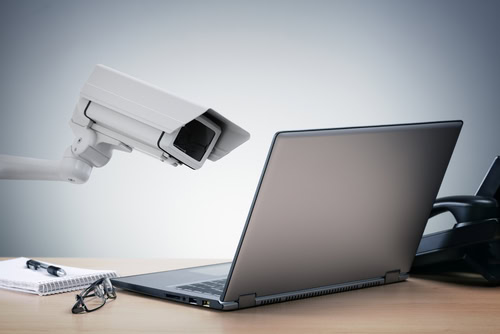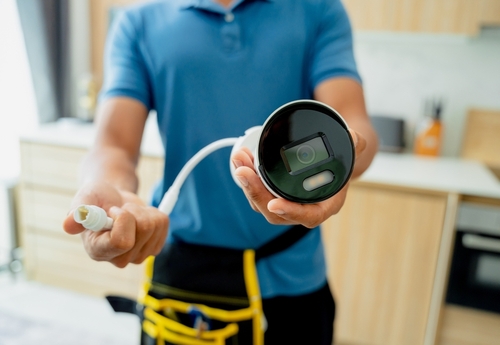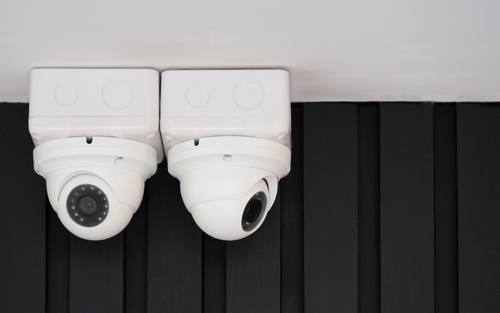
Hotel CCTV Solutions: Guest Safety and Property Protection
August 22, 2023
Choosing the Right Door Access Control System for Your Needs
October 22, 2023Different Types of Intercom Systems for Home and Business
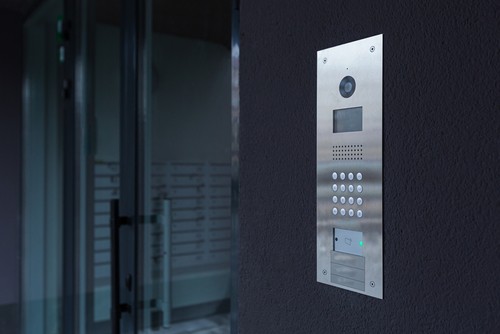
Different Types of Intercom Systems for Home and Business
Different Types of Intercom Systems for Home and Business. Intercom systems have come a long way since their inception.
Initially designed to facilitate simple voice communication within a building, these systems have evolved to encompass a wide array of features and applications.
This comprehensive guide will explore the various intercom systems available for home and business use, shedding light on their evolution and modern-day versatility.
Today, intercoms serve as indispensable tools in both residential and commercial settings.
These systems have found their place in modern living, from enhancing security to streamlining communication.
Whether you’re a homeowner looking to improve your property’s safety or a business owner seeking efficient internal communication solutions, this guide will equip you with the knowledge to make informed decisions.
We’ll delve into wired and wireless intercoms, video intercoms, IP-based systems, and mobile app-based intercoms. For businesses, we’ll discuss specialized systems tailored to office, healthcare, and industrial settings.
Read on – Different Types of Intercom Systems for Home and Business:
Wired Intercom Systems
Explanation of Wired Intercoms
Wired intercom systems, as the name suggests, rely on physical connections, typically through electrical wiring. These systems have a long history and are known for their reliability and durability.
Home and Business Applications
Wired intercoms find applications in both homes and businesses. In residences, they facilitate room-to-room communication and provide a reliable means of monitoring visitors at the front door. In business environments, wired intercoms are often used for internal communication within office complexes and industrial facilities.
Advantages and Limitations
Wired intercoms offer clear and uninterrupted communication, making them suitable for critical situations. They are less susceptible to interference from external factors like wireless devices. However, their installation can be complex and may require professional assistance. Additionally, they lack the mobility of wireless counterparts.
Installation Considerations
Installing a wired intercom system involves running cables and connecting various components. It’s essential to plan the layout carefully to ensure seamless communication. Professional installation is recommended for precision and reliability.
Wireless Intercom Systems
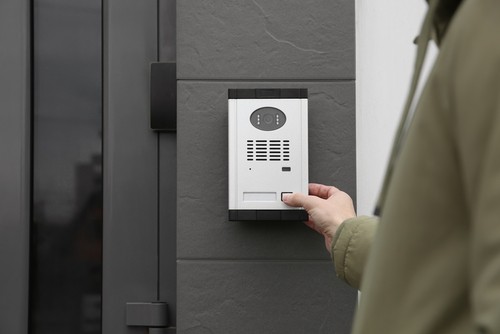
Understanding Wireless Intercoms
Wireless intercom systems operate without the need for physical connections. They rely on radio frequencies or Wi-Fi signals for communication, offering flexibility and ease of installation.
Use Cases in Homes and Businesses
Wireless intercoms are versatile and find applications in homes, businesses, and outdoor settings. They are commonly used for gate or door communication, allowing residents or employees to grant access remotely.
Benefits and Potential Drawbacks
Wireless intercoms are known for their easy installation and flexibility. They can be integrated with existing Wi-Fi networks, reducing the need for extensive wiring. However, their range may be limited by signal strength and can be susceptible to interference.
Installation and Setup
Installing a wireless intercom system involves positioning units within the desired range and configuring them to connect to the network. Users should ensure a stable Wi-Fi connection to maintain consistent communication.
Video Intercom Systems
Introduction to Video Intercoms
Video intercom systems take communication to the next level by adding visual components. They include cameras and displays, allowing users to see and interact with visitors or colleagues.
Residential and Commercial Use
Video intercoms are commonly used in both residential and commercial settings. In homes, they provide an added layer of security by enabling visual verification of visitors. In businesses, they facilitate secure access control and enhance communication.
Features and Advantages
Video intercoms offer the advantage of visual identification, making it easier to verify the identity of visitors or employees.
They often come with features like night vision for 24/7 functionality. Additionally, some systems allow for remote access, enabling users to interact with visitors from anywhere.
Video Intercom Installation Tips
Installing a video intercom system involves mounting cameras and displays at strategic locations.
Proper positioning is crucial to capture clear visuals. Users should also consider the need for additional features like night vision or two-way audio communication.
IP-Based Intercom Systems
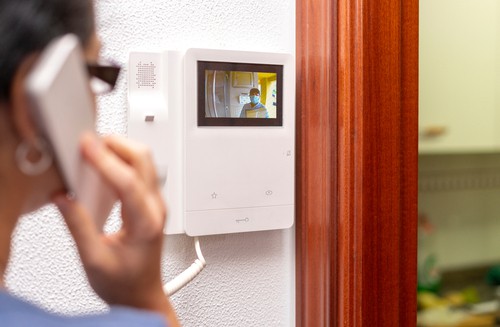
What Are IP-Based Intercoms?
IP-based intercom systems leverage the internet protocol for communication. They are highly flexible and can be integrated with existing IP networks, making them ideal for modern homes and businesses.
Integration in Modern Homes and Businesses
IP-based intercoms seamlessly integrate with modern technologies, allowing users to access communication features through smartphones, tablets, or computers.
They are particularly valuable in smart homes and businesses seeking advanced communication solutions.
Scalability and Flexibility
One of the significant advantages of IP-based intercoms is their scalability. Users can easily add or remove devices as needed, making them suitable for businesses with evolving communication requirements.
Network Requirements and Setup
A stable and secure IP network is essential to deploy an IP-based intercom system.
Proper configuration ensures seamless communication between devices. Users should also consider factors like data security and encryption for privacy.
Mobile App-Based Intercoms
Mobile App Intercoms Explained
Mobile app-based intercoms leverage the ubiquity of smartphones for communication. They allow users to transform their mobile devices into intercom units, providing convenience and accessibility.
Convenience in Home and Business Settings
Mobile app-based intercoms are incredibly convenient for both home and business users.
Homeowners can communicate with visitors from anywhere within their property, while businesses can enable employees to use their smartphones for internal communication.
Features and Mobile Compatibility
These intercoms often come with features like video calling and messaging. They are compatible with iOS and Android devices, ensuring widespread accessibility.
Security and Privacy Concerns
Users should prioritize security when using mobile app-based intercoms. Implementing secure authentication methods and encryption safeguards against unauthorized access.
Business Intercom Systems
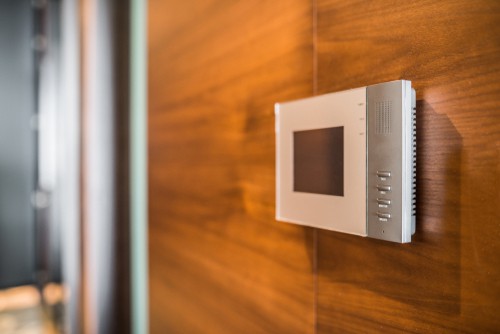
Specialized Systems for Business
Business intercom systems cater to specific industry needs. Office intercoms facilitate internal communication within corporate environments. Healthcare intercoms are designed for medical facilities, and industrial intercoms are tailored for rugged industrial settings.
Tailored Features and Industry-Specific Applications
Each business intercom system comes with features tailored to its respective industry. For instance, healthcare intercoms may include emergency call buttons, while industrial intercoms are built to withstand harsh conditions.
Integration with Other Business Technologies
Business intercom systems often integrate with other technologies like access control systems and VoIP phones. This integration streamlines communication and enhances overall operational efficiency.
Home Intercom Systems
Residential Intercom Options
Residential intercom systems enhance convenience and security within homes. They can include room-to-room communication and outdoor access control.
Use Cases in Different Parts of the Home
Home intercom systems are versatile and can be installed in various locations, such as the front door, kitchen, or bedrooms. Users can communicate easily, regardless of their location.
Intercoms for Security and Convenience
In addition to security benefits, home intercoms offer convenience. They eliminate the need to shout across the house or go downstairs to answer the front door.
Home Automation Integration
Home intercom systems can be integrated with home automation platforms, allowing users to control intercom features through voice commands or smartphone apps.
Access Control and Security
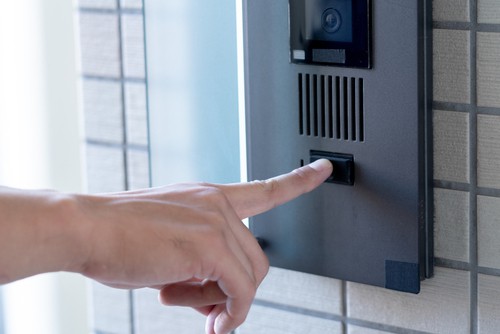
Intercoms as Access Control Tools
Intercom systems play a crucial role in access control. They allow users to verify the identity of visitors before granting entry, enhancing security.
Security Features and Authentication
Modern intercom systems often come with advanced security features like facial recognition or keyless entry. Proper authentication ensures that only authorized individuals gain access.
Video Surveillance Integration
Integrating intercom systems with video surveillance enhances security further. Users can not only communicate with visitors but also visually confirm their identity.
Choosing the Right Intercom System
Assessing Specific Needs and Use Cases
Selecting the right intercom system starts with a thorough assessment of your needs. Consider whether you require room-to-room communication, outdoor access control, or integration with other technologies.
Budget Considerations
Budgeting is a crucial step in the selection process. Evaluate the costs of the chosen intercom system, including installation, maintenance, and additional features.
Compatibility with Existing Infrastructure
Ensure that the selected intercom system is compatible with your existing infrastructure, such as Wi-Fi networks or access control systems.
Installation and Maintenance Requirements
Consider whether you prefer professional installation or a DIY approach. Additionally, factor in maintenance requirements to keep your intercom system in optimal condition.
Installation and Setup
Professional Installation vs. DIY
Deciding between professional installation and a DIY approach depends on your technical expertise and the complexity of the chosen intercom system. Professional installation guarantees precise setup and configuration.
Positioning and Wiring Considerations
Proper positioning of intercom units is essential for optimal performance. Consider factors like line of sight and signal range. For wired systems, plan the layout to accommodate wiring requirements.
Network Configuration for IP-Based Systems
If you opt for an IP-based intercom system, ensure that your network is appropriately configured to support seamless communication between devices.
Pairing Mobile App-Based Intercoms
Setting up mobile app-based intercoms involves downloading the relevant app, creating user profiles, and configuring settings. Ensure that all users have the app installed and access permissions.
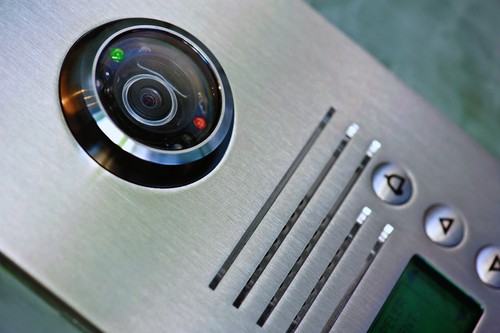
Maintenance and Troubleshooting
Regular Maintenance Practices
To prolong the lifespan of your intercom system, practice regular maintenance. This may include cleaning components, checking wiring, and testing communication functionality.
Common Issues and Troubleshooting Tips
Intercom systems may encounter common issues like audio problems or connectivity issues. Familiarize yourself with troubleshooting techniques or seek professional assistance when necessary.
When to Seek Professional Help
In some cases, issues may require professional intervention. If troubleshooting efforts do not resolve the problem, consult with a qualified technician to diagnose and address issues effectively.
Frequently Asked Questions (FAQs)
How do intercom systems enhance home security?
Intercom systems enhance home security by allowing residents to verify the identity of visitors before granting access. Video intercoms provide visual confirmation, adding an extra layer of protection.
Are there wireless intercom systems suitable for large businesses?
Yes, wireless intercom systems are available in a range of models suitable for businesses of various sizes. When selecting a wireless system for a large business, assessing your coverage and scalability needs is essential.
Can intercoms be integrated with smart home devices?
Many modern intercom systems can be integrated with smart home devices, allowing users to control intercom features through voice commands or smartphone apps. Ensure compatibility when selecting devices.
What are the costs associated with intercom system installation?
The costs of intercom system installation vary depending on factors like system type, features, and professional installation fees. It’s advisable to request quotes and proposals from reputable vendors to get accurate pricing.
Are there privacy concerns with video intercoms?
Privacy is a valid concern with video intercoms. To address this, choose systems with robust encryption and authentication features to safeguard your intercom communications.
Different Types of Intercom Systems for Home and Business – Conclusion
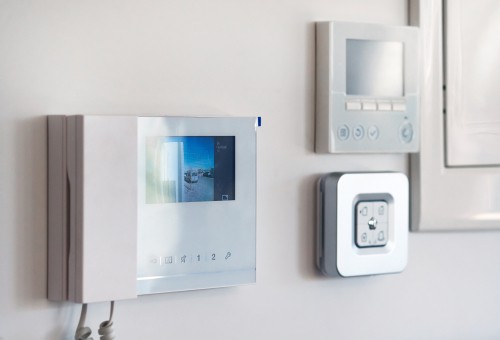
Intercom systems have evolved into versatile tools that enhance communication, security, and convenience in home and business environments. The choices are vast, from wired and wireless solutions to video intercoms and mobile app-based options.
We’ve covered many intercom systems and considerations to empower readers to make informed decisions.
Whether you want to secure your home, streamline office communication, or embrace smart home technology, the right intercom system can make a significant difference.
Intercom systems will evolve further as technology advances, offering even more features and integration possibilities.
Keeping abreast of these developments will ensure you stay at the forefront of modern living and communication.
Are you looking for professional intercom systems or CCTV installation services in Singapore? Contact us today!

